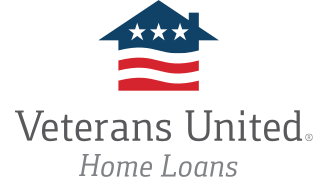Children of Veterans: Are They Eligible for VA Loans?
Knowing if you're eligible for the VA loan as a child of a Veteran can be helpful when looking to buy a home.
If you’re the child or stepchild of a Veteran, it makes sense that you might want to use a VA loan to purchase a home—but do you qualify?
The following guide will provide all the information you need to determine your eligibility and begin exploring your homebuying options.
Are Children or Stepchildren of Veterans Eligible for VA Loans?
Unfortunately, as a child or stepchild of a Veteran, you won’t qualify for a VA loan based on their military service. Military dependents have no access to VA home loans.
Are Grandchildren of Veterans Eligible for VA Loans?
Just as children of Veterans are not eligible for VA mortgage loans, grandchildren also will not qualify.
Unless you meet the VA’s length of service requirements, you’ll need to explore other mortgage lending options.
Who is Eligible for VA Loans?
VA loans are typically only available to people who fall into one of three categories:
1. Active duty military who meet the time-in-service requirements
2. Military Veterans who meet the time-in-service-requirements
3. Qualifying surviving spouses
Surviving Spouse Eligibility
As a surviving spouse, you will need to meet some unique requirements in order to be eligible for a VA home loan. Be sure to speak with a VA home loan specialist to see if your situation qualifies you for benefits.
Obtaining Your COE as a Surviving Spouse
To prove you’re eligible for a VA loan, you’ll need a Certificate of Eligibility (COE). This important document verifies that you’ve met the military requirements. Surviving spouses can obtain their COE by filing Form 26-1817 and your spouse’s discharge documents to the VA. While you don’t need to have this in hand when you start the VA loan process, you will need to provide it before your loan closes. Lenders can often help surviving spouses obtain the COE as well.
Mortgage Options for Children of Veterans
If you’re a child of a Veteran and are thinking about purchasing a home, you’ll be glad to know there are plenty of other options besides the VA loan. Here’s a look at some of the most common mortgage loan options for non-veterans.
1. Conventional Loans
A conventional loan is not offered or secured by any type of government agency. Instead, they’re offered by banks, credit unions, and mortgage companies.
Unlike a VA loan, conventional loans typically require a down payment. Some allow borrowers to put down as little as 3% of the loan amount. However, if you don’t put down at least 20%, you’ll typically need to pay for private mortgage insurance (PMI). This additional cost can eat into your purchasing power.
2. FHA Loans
FHA mortgage loans are backed by the Federal Housing Administration (FHA) and are a popular option, particularly among younger and lower-income borrowers thanks to the lower credit score and down payment requirements.
You can get an FHA loan with as little as 3.5% down, as long as you have a credit score of at least 580, but many lenders will expect higher. While it isn’t PMI, FHA loans do come with their own forms of both upfront and annual mortgage insurance.
3. USDA Loans
If you’re thinking of purchasing a home in a rural or suburban area, you may want to explore a USDA home loan. These $0 down loans are backed by the U.S. Department of Agriculture in the same way VA loans are backed by the Department of Veterans Affairs and FHA loans are backed by the Federal Housing Administration. They allow qualifying borrowers to purchase homes with no down payment at low rates.
Explore Your Mortgage Loan Options Today
If you’re wondering whether you qualify for a VA loan, your best bet is to speak with a professional. The experts at VA Mortgage Center are available to answer all your questions. Contact us today to learn more!


